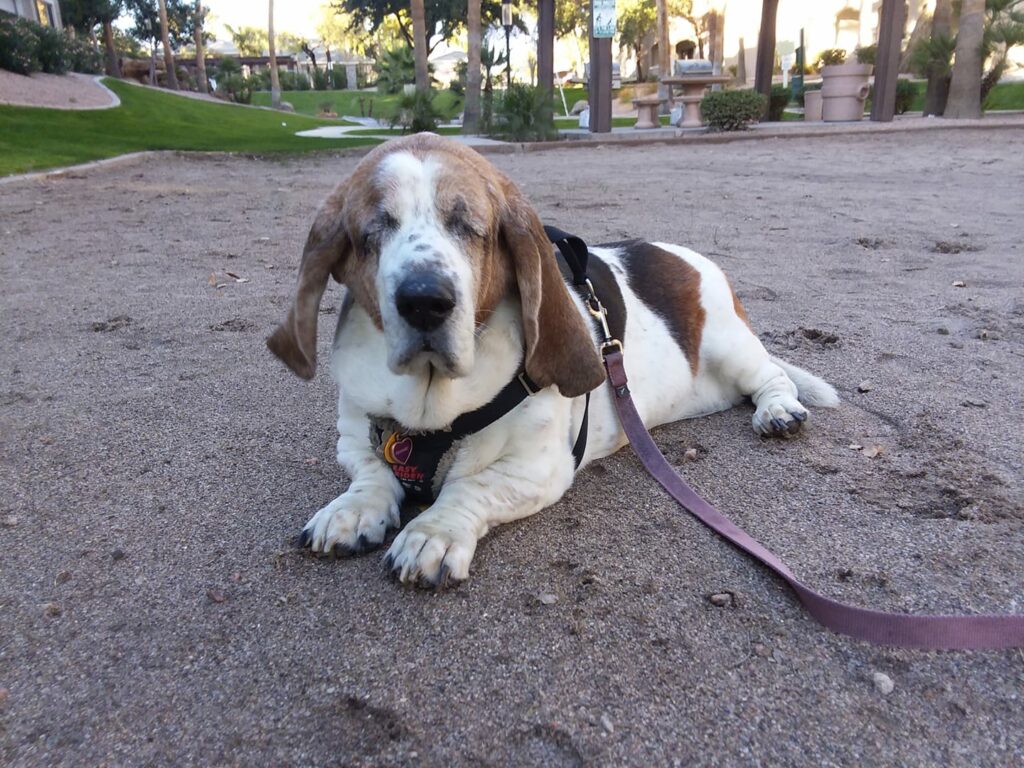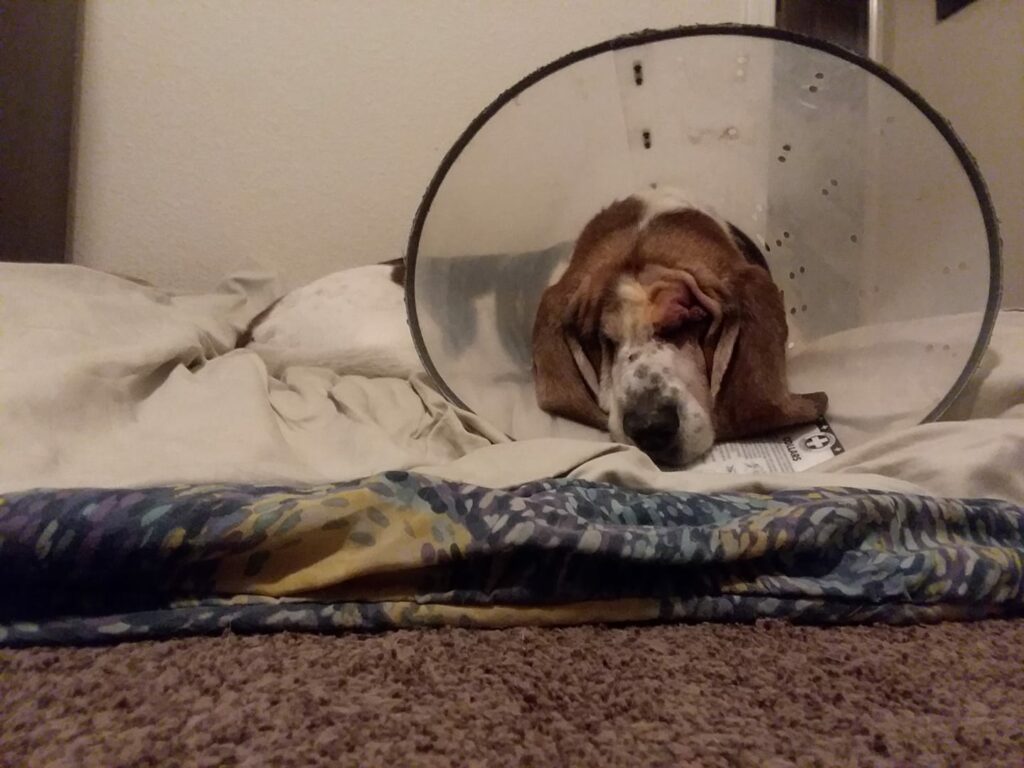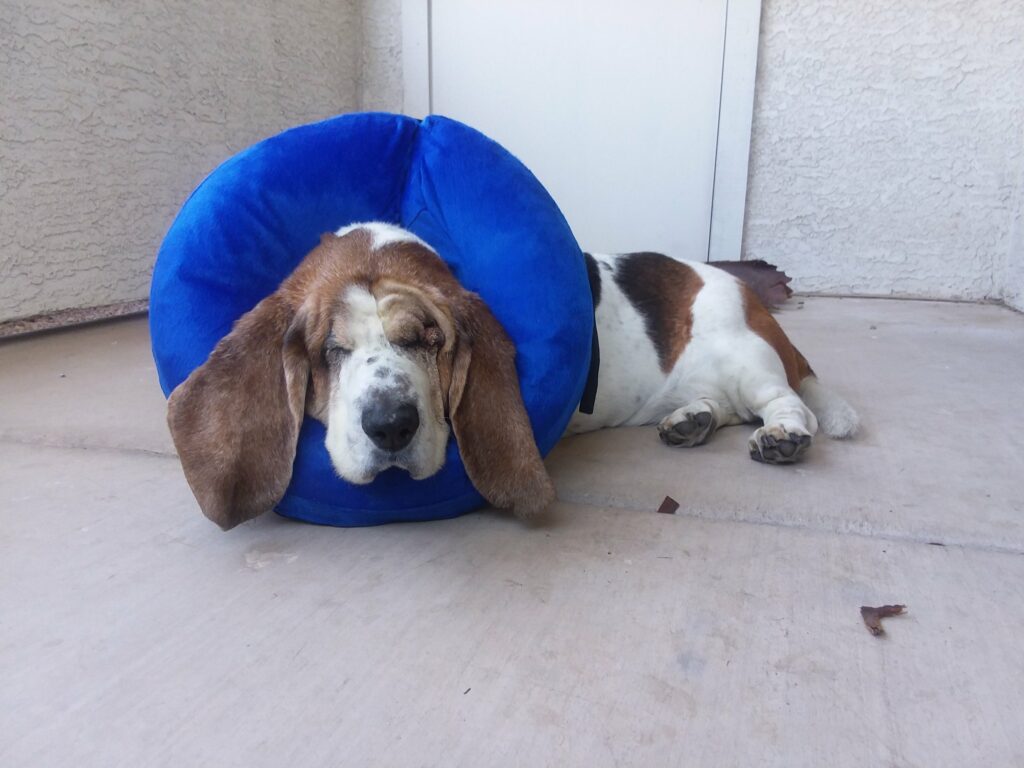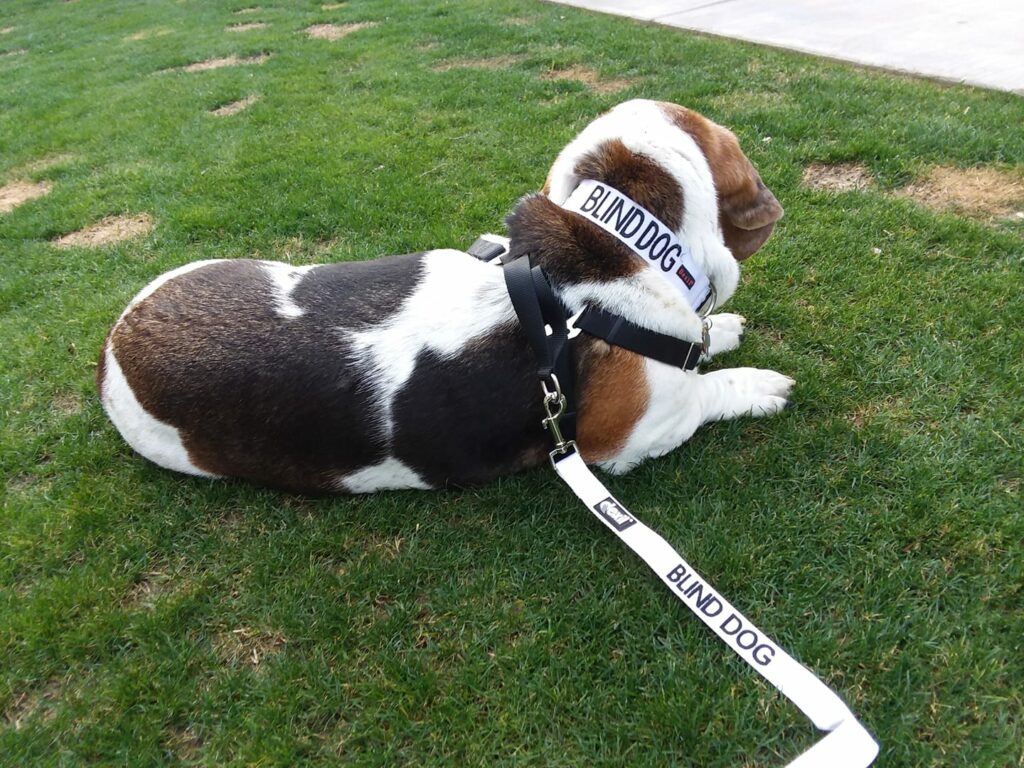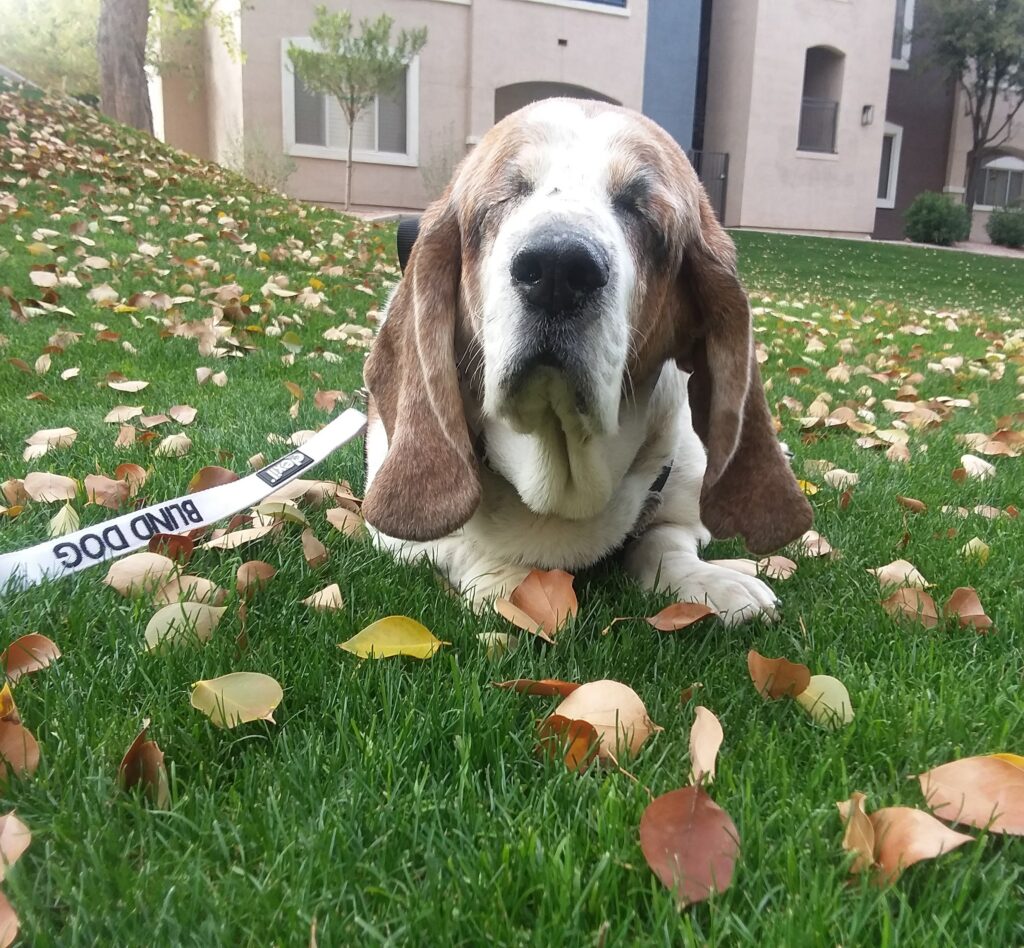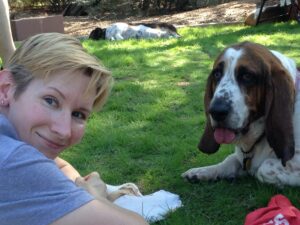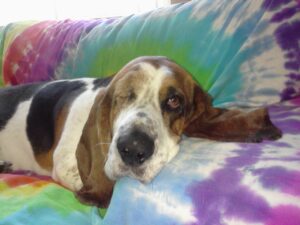October 21, 2007 – August 7, 2020
My sweet Rosie went over the Rainbow Bridge on August 7, 2020. This sweet basset hound came into my life in the spring of 2012 courtesy of the Arizona Basset Hound Rescue. When I first laid eyes on her and trotted up my front walkway, I knew she was my dog.
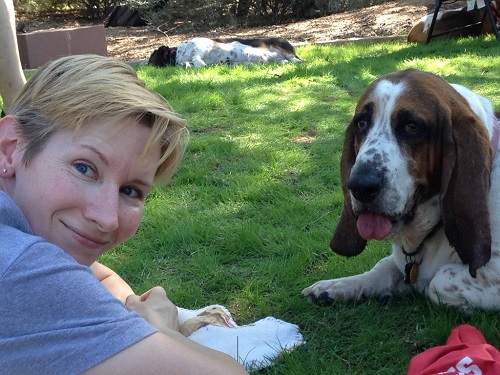
Rosie was such a smart dog. In Carter Law Firm’s infancy, I worked out of the house and had a mailbox at the UPS Store. When Rosie and I would pick up my mail, she’d walk around the counter and sit for a dog treat. Then she’d help herself to another one from the box. There was one time when Mom was visiting, and she made a cheesecake which she left on the dining room table. A little while later, we noticed a bite taken out of the cake and Rosie was quietly laying on her bed smacking her lips. Even at nearly five-feet long and 60 pounds, Rosie could be stealthy when she wanted.
Basset hounds are notorious for being stubborn, and Rosie was no exception. She regularly went “flat basset” while we were crossing the street. When she was on a scent, nothing could pull her off it. On more than one occasion, she got soaked at the park because she followed a scent right into the sprinklers. Speaking of the park, it was so much fun to watch her run with a group of dogs – well, the other dogs would be running as a group, and she’d be chasing after them, fast as her little lets could carry her.

Everyone loved Rosie. She had the best set of human friends and dog friends, and we had puppy playdates nearly every day. I loved when her godfather would come over because of how much she would bark with joy.
Rosie went nearly everywhere with me. I even registered her as an emotional support animal. Whenever we’d go out for a meal, I’d always order something for her along with a meal for myself. When the partners at my current firm announced that they wanted me to join, I responded, “Great. I come with a dog.” We had to have a third interview where I brought her in so they could see she was going to be a non-issue, particularly with a baby gate across my door. Technically, she was only supposed to come in once a week, but no one batted an eye when I brought her in more often.
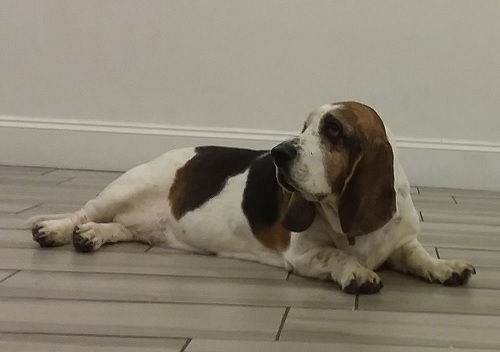
There were a handful of times I had to go out of town without her, and I had to leave her at the kennel, aka “Camp.” While she was there, I ordered extra bedding and playtime for her. I’d call and check on her each day, even though the report was always, “She’s fine. Everyone adores her. She sleeps a lot.” The best part of taking her to Camp was when I got to pick her up again. She barked like crazy coming through the lobby door, said a quick hello to me, before pulling me towards the exit.
In 2015, Rosie lost her eye to glaucoma, and the vet said it would only be a matter of time before she lost her other eye. Our schedule became regulated by her medication as she was put on a regimen of eye drops to try to sustain her sight as long as possible. Knowing that there was limited time, I wanted Rosie to see as much as she could for as long as she could. We took a long weekend trip to Long Beach, CA so she could experience the beach and the ocean at Rosie’s Dog Beach, an off-leash dog beach named after an English Bulldog. Not a fan of the water, she loved plodding along on the sand, and several times she plopped herself down on someone else’s blanket and looked up at them as if you say, “You shall pet me now.”
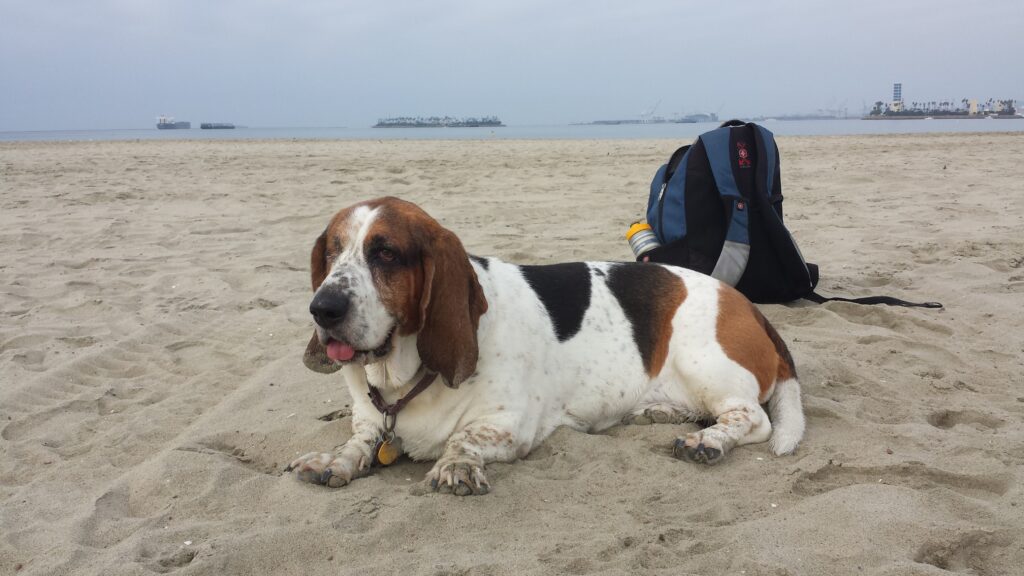
As the years progressed, Rosie began to slow down. She wasn’t interested in walking as far as arthritis began affecting her hips and knees. Sometimes she just wanted to walk two feet out the front door and lay down on the cool cement. She began sleeping more. Then, in 2018, Rosie lost her second eye to glaucoma. Her world went dark and I became her seeing eye human. Even though she couldn’t see, she would still wag her tail in happiness when she smelled a familiar person or pup.
As she continued to age, Rosie developed canine cognitive dysfunction (CCD) aka doggy dementia. Sometimes she would pace or pant as if she were lost in her own home, and she developed sundowners where she’d flip night and day. She had CBD to manage her anxiety during the day, and our vet prescribed trazadone to help her sleep through the night, which was a godsend. Rosie spent most of her days laying next to me as I worked at my desk and laying next to the front door when I went out.

During the last few weeks of Rosie’s life, I knew her time was short. I arranged for Rosie to be Miss January in the Arizona Basset Hound Rescue’s 2021 calendar, even though I knew she wouldn’t live long enough to see the new year. The photographer was so sweet, following Rosie around, getting shots when she could because older blind dogs do not pose for pictures. Then she invited me to jump in for a few shots. I’m so glad she got a few final shots of me smiling with my baby girl.
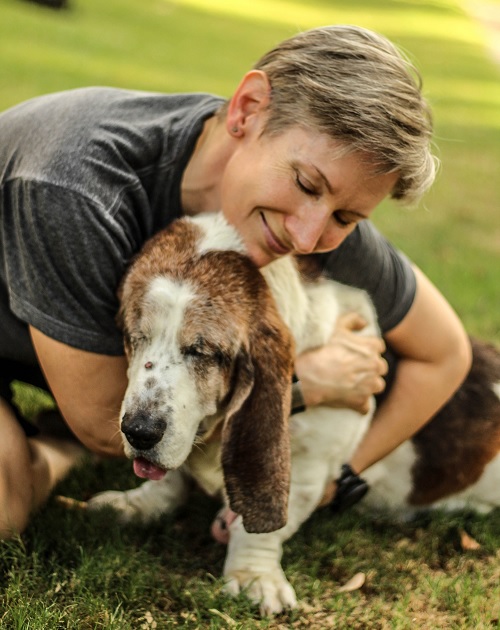
Rosie died at home on Friday, August 7, 2020 with the help of a mobile vet. It was one the hardest decisions I ever had to make. I stayed at her side until she took her last breath, hoping she knew, for every moment she was my dog, that she was loved.
